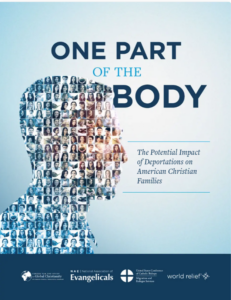
LAKELAND, Fla. (BP)–Ruling on their last pending appeal for the year, Florida’s Second District Court of Appeal Dec. 29 affirmed a lower court’s decision to not re-open a case involving the religious liberty of a disabled woman, Terri Schiavo.
The latest twist in a drama being played out in the Florida courts and at the U.S. Supreme Court came late in the day as the Second District Court of Appeal rendered their final decision for the year, without an opinion, while promising a formal decision within 15 days, according to the court clerk’s office.
Bob and Mary Schindler, Terri’s parents, filed the appeal, arguing that the removal of the woman’s feeding and hydration tube would violate her First Amendment religious rights. The Schindlers may file a motion within 15 days asking the court to re-hear their appeal, but will not be permitted to appeal the court’s decision to the Florida Supreme Court.
The Schindlers maintain that even if she had previously indicated she would wish to die in such circumstances, that as a Roman Catholic, Terri likely would have changed her mind after a statement last year by Pope John Paul II that removing a feeding tube from a patient like Terri would constitute “euthanasia by omission.”
Circuit Court Judge George Greer in October denied the religious liberty argument and refused to re-open the case based on what Schindler attorneys have said is a new development arising from a topic which previously had divided some Catholics. The stay he issued on removing Terri’s feeding tube will expire when the Second District Court of Appeals issues their final decision.
The woman at the center of the legal debate, Terri Schiavo has been in what some doctors consider a persistent vegetative state since 1990, when she collapsed in her home. Her husband and legal guardian, Michael Schiavo –- who has fathered two children with his live-in girlfriend –- has sought the removal of his wife’s feeding tube for nearly a decade, saying it is what she would have wanted. However, no written request from Terri Schiavo exists.
The Schindlers, have long maintained that their daughter has not received the rehabilitation and care she requires.
Schiavo’s feeding tube was removed in October 2003, but the Florida legislature passed a law giving Bush the authority to order the re-insertion of the tube. He did so, and Michael Schiavo challenged the constitutionality of the law, which was subsequently ruled unconstitutional by the Florida Supreme Court in September 2004.
Bob Schindler told the Florida Baptist Witness he is angered and frustrated by the court of appeal ruling, which may clear the way for Michael Schiavo to have his wife’s feeding tube removed.
“It was like a slap in the face,” Schindler said of the court’s action, and further, a “delayed Christmas gift to [Michael] Schiavo.”
Calling the court’s action “unbelievable,” Schindler said it appeared there is “collusion” between the judges in the case, resulting in what he calls “summary judgments” which don’t allow for oral arguments, opinions, or further appeals.
The court’s decision to play out the appeals process during the holiday means that despite a pleasant Christmas visit with Terri at the Woodside Hospice where she lives, Schindler will spend the New Year’s holiday working “to expose what is happening in this case.”
On Christmas Day Bob Schindler and his wife, Mary, and son, Bobby Jr., tried to brighten Terri’s day with a stuffed dancing mouse replete with bright Christmas lights.
Terri smiled in “approval” and made efforts to speak at the sight of the comical gift, Bob Schindler said, while he tried not to get angry at a nurse who told a hospice Santa and carolers that a stop in Terri’s room would be forbidden.
“We forgot to put Santa on the visitation list,” Schindler said he told the nurse in jest. “It is typical what’s happening, people have no idea. At a certain point, enough is enough.”
The day before Christmas, lawyers from Gibbs Law Firm, who are representing the Schindlers, had their first face-to-face visit with Terri.
“It was amazing,” one of the lawyers, Barbara Weller, told the Florida Baptist Witness. “She is so alert and so aware of her environment.”
Commenting on Terri Schiavo’s physical condition, Weller said the 41-year-old woman had a “peaches and cream complexion and gorgeous white teeth,” rather than being “gray and sallow” from not being allowed regular forages to the outside.
“Terri is a beautiful woman who radiates light,” Weller said.
Weller said she is surprised that the court of appeal has appeared to treat the case in such a “cavalier manner,” and has not considered all of the implications.
“The religious issue is very important in Florida,” Waller said. “It was extremely insulting how this was handled.”
Although options for an appeal to the recent motion filed with Judge Greer appear to be exhausted, Weller said her firm is planning to file about 4-5 other legal motions related to the case in the next few weeks.
George Felos, Michael Schiavo’s attorney, told the Associated Press Dec. 28 he did not intend to respond to the Schindler’s latest appeal. Felos called the court of appeal’s ruling a “definitive denial of the Schindlers’ frivolous claim,” and he told the Associated Press the court’s decision to not ask [Schiavo] for a brief was “an extraordinary statement.”
Bob Schindler told the Florida Baptist Witness that Schiavo’s intention all along had been to give the appearance he was backing off, when in reality he plans to ask for the removal of Terri’s feeding tube once the court of appeal’s formal decision is released, Schindler said.
Of the court, Schindler said: “They gave the win to the team that didn’t show up.”
Meanwhile, lawyers for Florida Gov. Jeb Bush have asked the U.S. Supreme Court to hear the case and the Washington-based American Center for Law and Justice weighed in with an amicus brief asking the court to take the case. The ACLJ filed the friend of the court brief Dec. 29 on behalf of Mary and Bob Schindler, supporting Bush’s petition.
Jay Sekulow, chief counsel of the ACLJ, said the governor and the Florida legislature acted properly in passing “Terri’s Law” and urged the high court to take the case to protect Terri’s life.
“This is a case that certainly deserves consideration by the Supreme Court and we are supporting the Governor’s office in its effort to have the high court take this critically important case,” Sekulow said. “At the center of this life and death struggle is Terri Schiavo –- a woman who has received a death sentence from the Florida courts.”
The brief (available at www.aclj.org/media/pdf/AmicusBriefinSuportofPetitioner2.pdf) argues that the Florida Supreme Court acted unconstitutionally in its decision when it determined that once any court has issued a decree regarding the care of an incompetent person, neither the legislature nor the executive branch can take independent steps on behalf of the incompetent person’s welfare. The brief also asserts Terri Schiavo is not in a persistent vegetative state and does not wish to die.
The U.S. Supreme Court is expected to give a decision by early January on whether or not they will accept the case.
–30–
Joni B. Hannigan is managing editor of Florida Baptist Witness, online at www.FloridaBaptistWitness.com.














